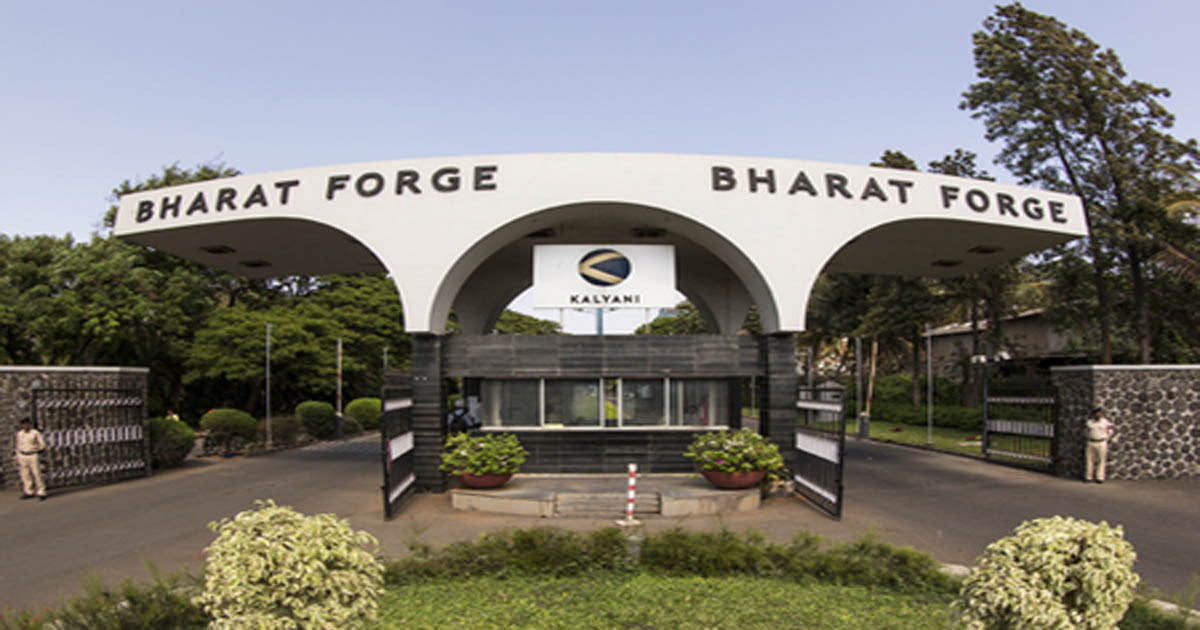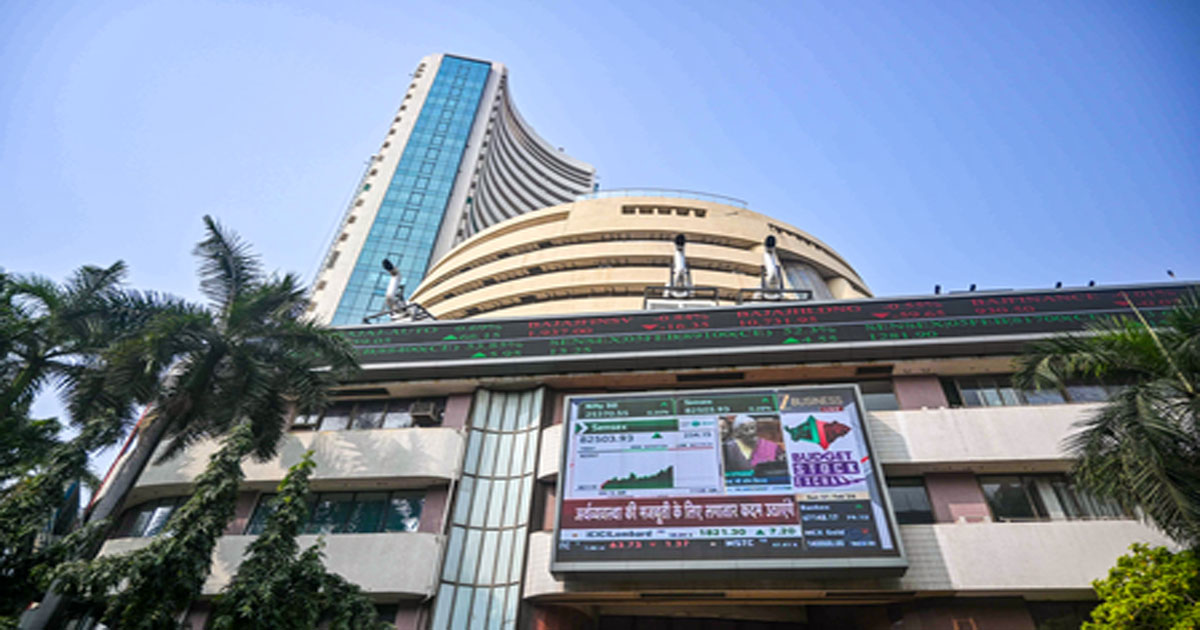Business
Opening bell: Markets trade flat; Sensex at 62,350.96, Nifty at 18,396.55

The markets on Tuesday opened flat with Sensex at 62,350.96, up by 5,25 points and Nifty down by 2.30 points at 18,396.55. Wipro, Infosys, Tata Steel, Power Grid and Nestle were the top gainers whereas ITC, Maruti, Mahindra and Mahindra, Kotak Bank and IndusInd Bank were the top losers.
The stocks of Airtel, Jindal Steel, Indian Oil, Granules and Bank of Baroda will be in focus as the companies are announcing the results for the last quarter today.
Markets on Monday
Buoyed by strong earnings, Sensex climbed 317 points to end the day at 62,345, while Nifty surged to 18,386 points in time for the closing bell. Tech Mahindra and Tata Motors led the pack of gainers, as with earnings of 75 firms scheduled for release on Monday.
Among laggards, Adani Enterprises lost the most, after firms form the group were dropped from the MSCI by Morgan Stanley. Real estate stocks along with media, IT, auto and FMCG were in the green, while pharma and energy failed to impress.
India’s trade deficit
India’s Trade deficit in April fell to $ 15.24 billion in comparison to $18.36 billion it reported last year, due to softening domestic demand and easing commodity prices. This is the lowest trade deficit in 21 months
Global markets
US stocks after slightly lower close on Friday, rose higher on Monday after benchmark Treasury yields saw a rise amid dim optimism that Washington will get past partisan wrangling and reach a debt ceiling deal. Dow Jones after declining for five straight sessions rose 47.98 points to 33,348.6, S&P 500 added 12.2 points to 4,136.28 and Nasdaq Composite gained 80.47 points to 12,365.21.
Asian markets trade higher on Tuesday morning with Singapore’s SGX Nifty up by 45 points at 18,448.50, Japan’s Nikkei 225 jumped 231.81 points at 29,858.15. Even Hong Kong’s Hang Seng saw a rise of 154.57 points to 20,125.70 and South Korea’s KOSPI was slightly higher at 2,487.59 with a gain of 8.24 points.
Oil prices
Oil prices on Tuesday were higher for the second day as US plans to purchase oil for the Strategic Petroleum Reserve. However, wildfires in Canada have added to the ongoing supply worries. Brent crude futures were up by 31 cents at $75.54 per barrel and US West Texas Intermediate Crude rose by 27 cents at $71.38 per barrel.
The government on May 15 has canceled windfall tax on crude petroleum to nil from the earlier 4,100 per tonne. The windfall tax on aviation turbine fuel, petrol and diesel was already at nil.
Rupee
Indian rupee on Tuesday opened slightly higher at 82.23 per dollar against Monday’s close of 82.30.
Business
Mumbai Infra: BMC Plans ₹220-Crore Flyover Between Mahim & Bandra East To Ease Congestion On WEH

Mumbai: In a bid to ease traffic congestion along a crucial stretch of the Western Express Highway (WEH), the Brihanmumbai Municipal Corporation (BMC) has revived plans to construct a flyover connecting Mahim and Bandra (East). The civic body has once again invited tenders for the long-pending project after earlier attempts failed to attract bidders.
The proposed flyover will link Machhimar Colony on Senapati Bapat Marg in Mahim to Bandra (East), providing an alternative route for motorists who currently face severe traffic snarls on the western express highway. The congestion typically begins at Mithi Chowk in Bandra (East) and extends up to Dadar, significantly slowing down traffic on the WEH.
The project is estimated to cost approximately Rs. 220.17 crore. The flyover will stretch for over one kilometre and is expected to ease pressure on existing routes between Mahim and Bandra (East), an area that already includes the Chunabhatti–BKC flyover and the old Kalanagar flyover.
This is not the first time the BMC has attempted to push the project forward. The initial tender, floated in 2022, was withdrawn due to technical issues. A second tender issued in July 2023 failed to receive any bids and eventually lapsed. The bridge department has now reissued the tender, expressing hope that contractors will come forward this time.
The project involves crossing areas near Mithi Chowk, which will require clearances from the Coastal Regulation Zone (CRZ) authorities and the Forest Department. The responsibility of securing these permissions will lie with the appointed contractor.
Once completed, the flyover is expected to streamline traffic flow between Mahim and Bandra (East) and provide relief to commuters using one of the city’s busiest arterial corridors.
Business
Bharat Forge’s Q3 profit falls 17 pc, Rs 2 interim dividend announced

Mumbai, Feb 12: Bharat Forge on Thursday reported nearly 17 per cent year-on-year decline in its standalone net profit for the quarter ended December 2026 (Q3 FY26).
On a standalone basis, the company posted a net profit of Rs 288 crore lower than Rs 346 crore reported in the same quarter last financial year (Q3 FY25), according to its stock exchange filing.
Standalone revenue from operations saw a marginal dip of 0.6 per cent to Rs 2,083.7 crore in Q3 FY26.
On a consolidated basis, the performance was stronger. Revenue rose 25 per cent year-on-year to Rs 4,343 crore, compared with Rs 3,476 crore in the year-ago period.
Net profit increased 28.2 per cent to Rs 273 crore from Rs 213 crore in the corresponding quarter last financial year.
The company said the quarterly numbers included a one-time cost of Rs 55.7 crore, which had an impact on margins.
Earnings before interest, tax, depreciation and amortisation (EBITDA) grew 20 per cent to Rs 750 crore from Rs 624 crore a year ago.
However, EBITDA margin moderated to 17.3 per cent from 18 per cent in the same quarter last financial year.
The Board of Directors also declared an interim dividend of Rs 2 per equity share of face value Rs 2 each, which translates to a 100 per cent payout on the face value.
The dividend will be paid on or before March 12, 2026, and the record date for determining eligible shareholders has been fixed as February 18, 2026.
Commenting on the performance, B. N. Kalyani, Chairman and Managing Director of Bharat Forge, said the results continued to be impacted by de-stocking in the North American commercial vehicle market.
He added that strong growth in the domestic automotive business and execution of the defence order book helped support the overall performance.
On a sequential basis, standalone revenue rose 7 per cent quarter-on-quarter to Rs 2,084 crore.
EBITDA increased 4.6 per cent to Rs 569 crore, while margins stood at 27.3 per cent. Export revenue declined 3 per cent on a sequential basis, with auto exports falling 13 per cent, even as industrial exports grew 11 per cent.
Business
Sensex, Nifty open in red; IT index dips 3.58 pc

Mumbai, Feb 12: The Indian equity markets opened lower early on Thursday weighed down by IT stocks.
As of 9.25 am, Sensex lost 397 points, or 0.47 per cent, to reach 83,836, and Nifty lost 111 points, or 0.43 per cent, to settle at 25,842.
Main broad-cap indices posted stronger losses than benchmark indices, as the Nifty Midcap 100 declined 0.76 per cent, and the Nifty Smallcap 100 dipped 0.88 per cent.
All sectoral indices traded in the red except FMCG, private banks as well as oil and gas. Most notable losers were Nifty IT down 3.58 per cent, realty down 1.11 per cent and media down 1.04 per cent.
Immediate support for Nifty is placed at 25,800-25,850 zone, while resistance is anchored at 26,050-26,100 zone, market watchers said.
Analysts said that the latest US jobs data indicating addition of 1.3 lakh jobs last month and unemployment falling to 4.3 per cent points weakened hopes of rate cuts by the Fed in the near-term.
In India, market watchers said that the rate cutting cycle is over since growth is good and inflation is expected to inch back to the RBI’s long-term target by the end of FY27.
In Asian markets, China’s Shanghai index added 0.12, and Shenzhen gained 0.81 per cent, Japan’s Nikkei gained 0.1 per cent, and Hong Kong’s Hang Seng Index eased 0.97 per cent. South Korea’s Kospi gained 2.74 per cent.
The US markets ended largely in the red overnight as Nasdaq eased 0.16 per cent. The S&P 500 traded flat, and the Dow Jones lost 0.13 per cent.
On February 11, foreign institutional investors (FIIs) net bought equities worth Rs 944 crore, while domestic institutional investors (DIIs) were net sellers of equities worth Rs 125 crore.
Indian equities corrected in January amid global volatility and FII outflows; however, the medium-term outlook remains constructive, according to analysts.
-

 Crime4 years ago
Crime4 years agoClass 10 student jumps to death in Jaipur
-

 Maharashtra1 year ago
Maharashtra1 year agoMumbai Local Train Update: Central Railway’s New Timetable Comes Into Effect; Check Full List Of Revised Timings & Stations
-

 Maharashtra1 year ago
Maharashtra1 year agoMumbai To Go Toll-Free Tonight! Maharashtra Govt Announces Complete Toll Waiver For Light Motor Vehicles At All 5 Entry Points Of City
-

 Maharashtra1 year ago
Maharashtra1 year agoFalse photo of Imtiaz Jaleel’s rally, exposing the fooling conspiracy
-

 National News1 year ago
National News1 year agoMinistry of Railways rolls out Special Drive 4.0 with focus on digitisation, cleanliness, inclusiveness and grievance redressal
-

 Maharashtra1 year ago
Maharashtra1 year agoMaharashtra Elections 2024: Mumbai Metro & BEST Services Extended Till Midnight On Voting Day
-

 National News1 year ago
National News1 year agoJ&K: 4 Jawans Killed, 28 Injured After Bus Carrying BSF Personnel For Poll Duty Falls Into Gorge In Budgam; Terrifying Visuals Surface
-

 Crime1 year ago
Crime1 year agoBaba Siddique Murder: Mumbai Police Unable To Get Lawrence Bishnoi Custody Due To Home Ministry Order, Says Report




















